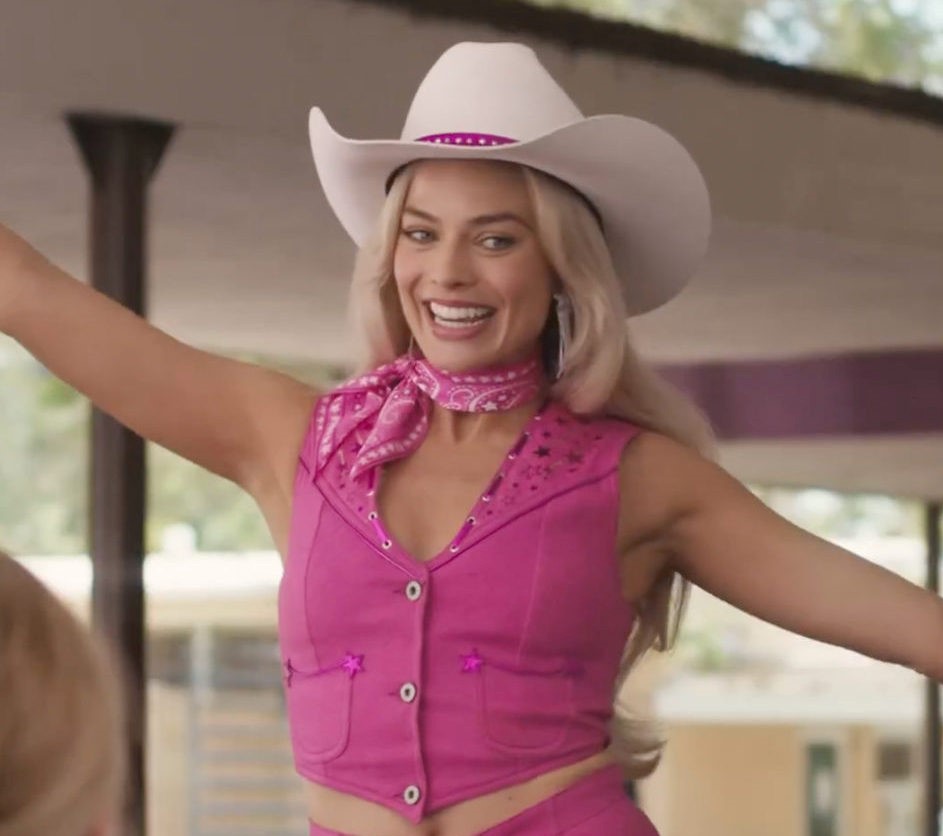
Featured Item

Barbie takes feminism into real world
It seems particularly fitting that Greta Gerwig’s Barbie, a film that tackles feminism in often surprising ways, has this week reached the $1 billion (R18.6 billion) mark at the global box office, becoming the highest grossing film headed by a solo female director. In light of Women’s Day this week, we look at how the film is bringing questions of feminism and the patriarchy into mainstream media.
“It’s literally impossible to be a woman,” says Gloria (America Ferrera), a character who inadvertently transfers her stresses and worries from the real world onto Barbie (Margot Robbie). This is the opening line of a powerful movie monologue that illuminates the contradictory expectations placed on women. “I’m just so tired of watching myself and every single other woman tie herself into knots so that people will like us,” she says. “And if all of that is also true for a doll just representing women, then I don’t even know.”
While a film that follows a “stereotypical Barbie” who ventures into the real world may be an unlikely mouthpiece for issues around gender equality, the strong responses it has ignited have thrust it into this role. Jessica Goldblatt, an English literature masters student specialising in issues of gender and religion, says that although the film is far from a perfect representation of modern feminism, the debate it has ignited is where its strength lies. “Now, people are talking about patriarchy, and thinking about feminism in such a widespread way – one that is nothing short of remarkable.”
It’s a view shared by Debby Edelstein, a Johannesburg-based women’s leadership expert who runs women’s empowerment and inclusion programmes in traditionally male-dominated industries around the world. “For too long, feminism has been a word that has been polarised by those for and against it, even though at its simplest, all feminism really means is that all genders should have equal rights and opportunities. It feels a little surreal that it would be Barbie who would take the conversation around gender equality mainstream, but this is precisely what has happened.”
A tongue-in-cheek dive into the world of an iconic female toy, the film’s fun and colourful exterior is underpinned by a somewhat darker reality. “Like all good satire, it serves a deep political purpose,” says internationally bestselling author, women’s rights activist, and writing mentor, Joanne Fedler. “It punches up – making fun of the existing, often invisible power structures which hold women back and define how we see ourselves.”
In this way, the movie collapses the idea of patriarchy – a system where positions of power and privilege are held primarily by men. In spite of many who have claimed otherwise, this message is not anti-men, but rather anti-patriachy – it reveals how patriarchy is in fact as limiting to men as it is to women.
“Patriarchal societies pigeonhole men and women,” says Goldblatt. “Men feel the need to assume certain dominant roles, and this can be damaging to their sense of self. “Women’s talents and abilities are ignored, and they become accessories to men. The film’s basic message is that both men and women are worthy, unique, and interesting, and should be encouraged to develop their uniqueness, without rigid gender roles.”
Struck by a friend’s 11-year-old daughter who loved Barbie but found it sad, Fedler delves further into how the movie tackles patriarchy. “What’s ‘sad’ about the Barbie movie is that while there’s nothing remotely threatening about seeing Kens disempowered – it’s funny, because it’s make-believe – there’s something almost hauntingly menacing in the contrast between the Barbie world and the real world.”
Though issues of gender violence aren’t explicitly tackled, they hover beneath the surface, especially when patriarchy is placed under the microscope. “Perhaps even 11-year-olds understand that something disquieting lurks in what remains unsaid,” says Fedler. While in Barbie Land, women call the shots – at least initially – in the real world, they’re objectified in a way that horrifies Barbie when she visits.
While Barbie herself has long been responsible for creating unrealistic beauty standards, Gerwig acknowledges that Robbie’s Barbie character is stereotypical and that these stereotypes are dangerous, says Goldblatt. “Gerwig’s Barbie Land is beautifully diverse, with Barbies of different sizes and races. In this Barbie Land, everything is perfect for women: there’s a female president and women run the Supreme Court. Women have no sense of insecurity, imposter syndrome, or fear.
“And then, Barbie goes into the real world, and of course, everything is different. As a viewer, you go through the disappointment with her. Barbie Land is held out to you as this incredible possibility, and the patriarchal real world falls so short in comparison.”
Yet, though the real world disappoints Barbie, there’s a seemingly simple scene that holds another of the film’s key themes – that of self-esteem. “My favourite moment was when Barbie tells an old woman at the bus stop that she’s beautiful, and she says, ‘Don’t I know it?’,” says Fedler. “Right there is the message – beauty is self-love. Nothing more.”
This is especially resonant in a society not only dominated by unrealistic internal and external expectations of women, but also one in which women feel particularly vulnerable. Reflecting on the state of our world right now with war, intolerance, and unprecedented levels of violence against women and children, Edelstein says that “It’s clear that a system of society or government in which men hold the power and women are largely excluded from it is an intolerable, unhealthy way to live.”
That’s why the conversations that Barbie has started are so timely. “Discussions about how we live, lead, and treat each other are essential if we are to build a healthier world,” Edelstein says. “It should no longer be radical to say that all genders should be allowed to participate equally in making this happen.”
Such conversations need to start in the home when children are very young, she suggests. “We need to have discussions about how women are treated by others in the workplace and in the world but long before that, we have to start with how women and girls are treated at home. The most important conversations around gender dynamics take place not in the boardroom but in the breakfast nook. This is where we’re first introduced to the unequal power dynamics around gender.”
Goldblatt says that simply starting such conversations is often the most difficult step in tackling these issues. “This is an especially important conversation for us to be having in the Jewish community,” she says. “Talk about gender roles and patriarchy rarely happens, in my experience, in these spaces. We need to start these conversations even if they’re going to be difficult and complex.”










